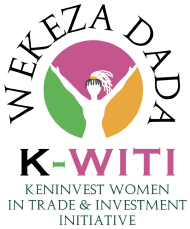Early this month, the Business Daily reported the findings of a survey showing that Kenya is the most attractive destination for Japanese firms seeking to make new investments in Africa, beating the continent’s larger economies like South Africa and Nigeria for five consecutive years.
The survey was commissioned by the Japan External Trade Organization (JETRO) in 2020.
I thought it might be interesting for Kenyans to know a little more about this issue, especially the historical perspective and the journey it took to reach this point where Japanese businesses have so much interest in Kenya. In addition, a few words about what may be expected in the days to come as a direct outcome of this increased interest by Japanese companies.
The acceleration of interest in Kenya by Japanese corporations began with the 6th Tokyo International Conference on African Development (TICAD VI) held in Nairobi in 2016 — the first on the African continent.
I am not saying that prior to this there was no interest. On the contrary, the interest in Kenya had long been increasing among Japanese corporations and the number of investments had also increased steadily.
But definitely TICAD VI was a key turning point. It provided Japanese companies with a chance to discover investment opportunities in Kenya and some of the interest shown even materialised into starting up actual businesses in Kenya.
During the conference, various companies from Japan and Africa signed a total of 73 memoranda of understanding (MoUs) on their businesses. Approximately one third of the MoUs were related to Kenya. Today, we have seen a substantial increase in the numbers of Japanese companies setting up operations in Kenya, rising from 52 in 2016 to 89 in 2020.
TICAD VI also identified four pillars on which the initiative would focus its efforts going forward. The first of these was a pillar of “promoting structural economic transformation through economic diversification and industrialisation”.
Since then, Japan has moved to actualise this pillar through different infrastructure projects such as the Olkaria Geothermal Power Plant Project and the Mombasa Special Economic Zone (SEZ) Development Project.
When it comes to attracting new investment from Japan or from the corporate sector of any other industrialised country, I would emphasise two of the essential requirements; affordable electricity and modern infrastructure.
Japan has been contributing to Kenya’s power generation for the past 40 years. In Kenya, 45 percent of the total electricity supply comes from geothermal power generation. More than 80 percent of such geothermal power has been generated by Japanese turbines, which are not only very reliable but durable as we have witnessed at Olkaria.
However, inexpensive geothermal energy is not an end in itself. It should be a catalyst for industrialisation and job creation. That is why we have engaged in the development of the Mombasa SEZ, a 987-hectare industrial and commercial hub in the Dongo Kundu area of Mombasa County, near the Port of Mombasa.
The SEZ concept offers the perfect combination of facilities to attract investment from both foreign countries and the local community in the manufacturing sector, which estimates to create about 27,000 jobs in Kenya.
Simultaneous with this, in the area of “human resource development” we have the ABE Initiative, a programme which sends young Kenyans with leadership potential to study for advanced degrees in Japan. In the process, they also get exposure to various Japanese techniques in manufacturing and innovation.
All these serve to demonstrate that TICAD is not just about speeches made at conferences but is mainly about making a real difference in the lives of the ordinary people in Africa through well-targeted assistance.
We are particularly pleased to note that in many ways, these development projects arising from the TICAD pillars are very closely aligned to Kenya’s Big Four Agenda: food security, affordable housing, manufacturing, and universal healthcare.
Even during the Covid-19 pandemic, the Japanese government will continue to support the business partnership between our two countries. In January this year, Motegi Toshimitsu, the Japenese minister for foreign affairs, visited Kenya. During the bilateral meeting, he announced plans to hold the Third Japan-Kenya Business Dialogue to promote business relationship between Japan and Kenya, which was initially established in 2019.
Many companies which took part in the JETRO survey cited market expansion with the growth of population and expectations for the African Continental Free Trade Area (AfCFTA) as reasons for Kenya’s attractiveness as an investment option.
The creation of this free trade area is indeed a framework that Kenya is sure to benefit from. Kenya has long been recognised as the gateway to all of East and Central Africa, and now with AfCFTA, Kenya can firmly establish her position as the key entry point from the Indian Ocean side of the continent to all of Africa.
It is with such considerations in mind that Japan has played a key role in the expansion of the Port of Mombasa as well as the Dongo Kundu Special Economic Zone, which we believe will one day be a manufacturing centre for products sold all over Africa.
All these serve to reaffirm to the Japanese corporate sector that the Japanese government has great confidence in the future of Kenya. And this in turn encourages them to continue to invest in the future of Kenya.
TICAD 8 will be held in 2022 in Tunisia. I strongly believe that the next TICAD would become another opportunity to strengthen business partnership and boost business activities between Japan and Kenya.
Source: Business Daily Newspaper.








